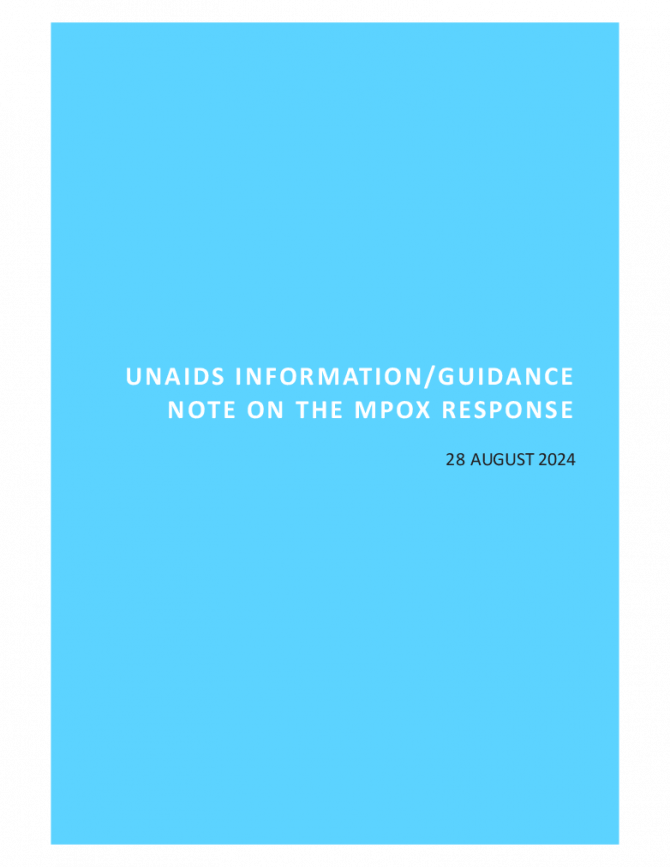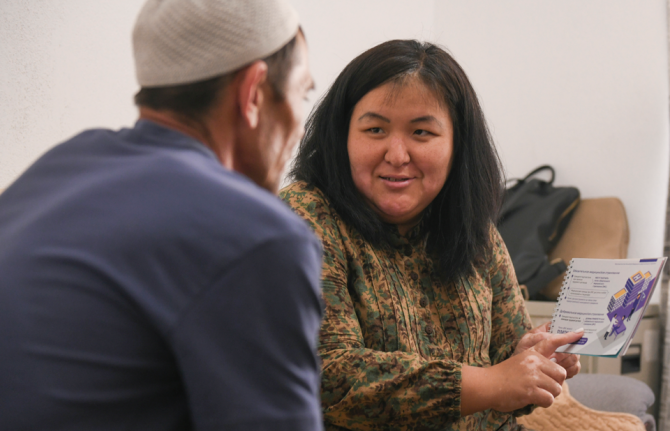Documents
UNAIDS information/guidance note on the mpox response
30 August 2024
The purpose of this Information/Guidance Note is to provide the Joint Programme including UNAIDS and cosponsors at all levels, with guidance in drawing upon the full collective experience of the Joint Programme and engaging and supporting national mpox responses, alongside our efforts in advancing HIV service coverage, to protect people vulnerable to HIV. This guidance is produced in line with the UNAIDS Position on Pandemic Prevention, Preparedness and Response (PPPR), WHO Strategic Framework for Enhancing Prevention and Control of Mpox (2024‐2027) and the Global AIDS Strategy (2021–2026).

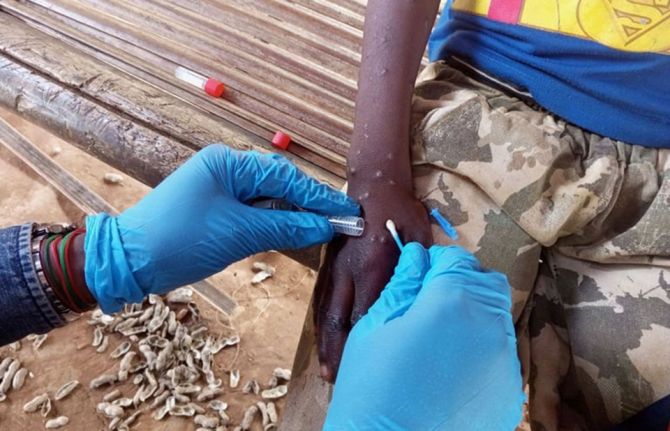
Press Statement
UNAIDS calls for a rapid international response to mpox based on rights and an equitable access to vaccines and treatments
19 August 2024 19 August 2024GENEVA, 19 August 2024—UNAIDS is calling on the international community to respond swiftly and decisively to the World Health Organization’s declaration of the mpox outbreak in several African countries as a public health emergency of international concern. The move came after the Africa Centres for Disease Control and Prevention (Africa CDC) made a similar declaration for the region.
“The emergence of a new and more contagious variant of mpox, and the devastating impact it is having on communities, across Africa, especially those most vulnerable including from HIV and AIDS, is alarming,” said Angeli Achrekar, UNAIDS Deputy Executive Director, Programme. “We must call on international efforts to focus on ensuring vaccines and treatments are accessible and available to all who need them and draw on the experience of the AIDS movement to ensure a response rooted in solidarity, compassion, inclusion, and equity.”
Many communities affected by mpox face discrimination, similar to people who are affected by HIV and AIDS. Stigma and discrimination undermine epidemic responses, driving people with symptoms underground and hindering efforts to protect public health. UNAIDS urges people to show compassion and solidarity to people affected, not intolerance and discrimination. We at UNAIDS, across the entire Joint Programme, also emphasize the crucial role of involving communities in every stage of the response—from development to implementation and monitoring.
The emergence of the 2024 mpox variant once again demonstrates the need for international, multisectoral coordination and solidarity to end pandemics. The Joint United Nations Programme on HIV/AIDS, is committed to bring its expertise and support to countries to help. UNAIDS urges all media covering the crisis to follow the regular updates being issued by WHO and Africa CDC.
UNAIDS
The Joint United Nations Programme on HIV/AIDS (UNAIDS) leads and inspires the world to achieve its shared vision of zero new HIV infections, zero discrimination and zero AIDS-related deaths. UNAIDS unites the efforts of 11 UN organizations—UNHCR, UNICEF, WFP, UNDP, UNFPA, UNODC, UN Women, ILO, UNESCO, WHO and the World Bank—and works closely with global and national partners towards ending the AIDS epidemic by 2030 as part of the Sustainable Development Goals. Learn more at unaids.org and connect with us on Facebook, Twitter, Instagram and YouTube.

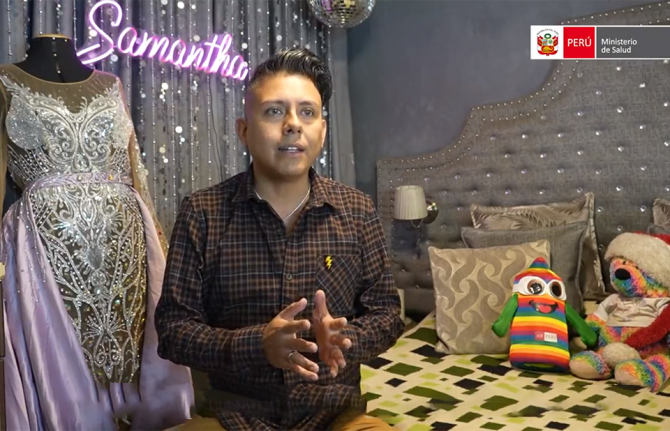
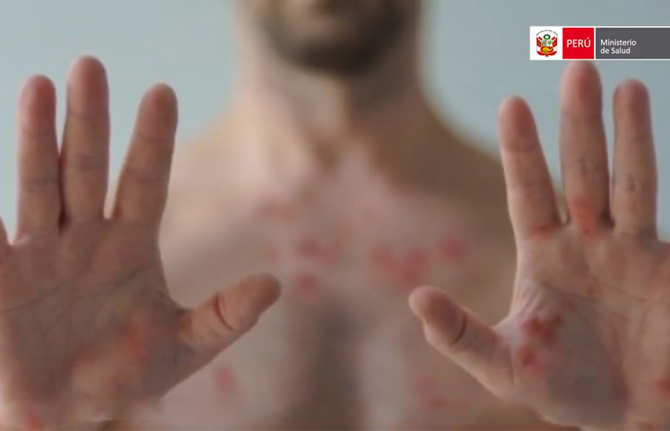
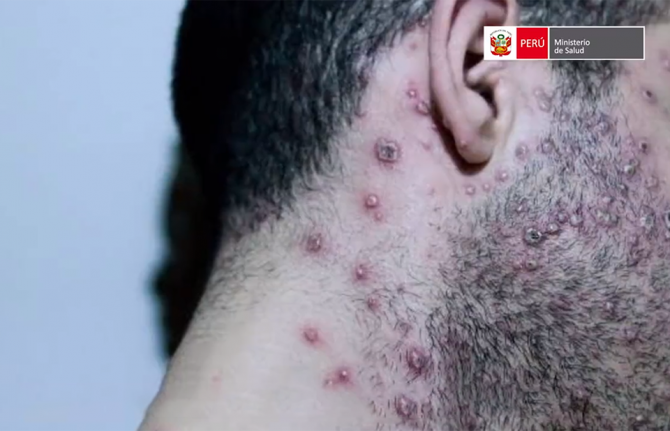
Feature Story
Communities at the centre of an orchestrated emergency response to monkeypox in Peru
10 October 2022
10 October 2022 10 October 2022"My name is Jonathan. Today I'm not going to tell you how I got monkeypox, but how complicated it is to carry this disease", says the activist and crossdresser Jonathan Albinagorta. He is also known as Samantha Braxton, one of the influencers supporting the Ministry of Health in its video campaigning on monkeypox prevention in Peru.
With more than 2300 confirmed cases of Monkeypox by the end of September, Peru had the world's highest infection rate per million people, according to Our World in Data, a collaborative online platform led by researchers at the University of Oxford.
The response to the outbreak in Peru was set up under the leadership of the national HIV strategy team, which developed a plan to raise awareness of the disease. Its public real-time data dashboard, inspired by the COVID-19 response, provided concrete evidence for the rapid of an awareness campaign. However, the same data, mainly from HIV-specialized centres, also had the unwelcome side-effect of increasing stigma and discrimination for some groups of people.
"The data created a biased sample at the beginning. Evidence showed that people living with HIV and some key populations, such as gay men, were among the most affected in Peru", recalls Andrea Boccardi, UNAIDS director for Peru, Bolivia, Ecuador and Colombia. "But these are the very people who have the culture of going to the HIV-friendly services for consultations, for periodical examinations and HIV treatment."
Referral Centers for Sexually Transmitted Infections, known as Cerits, and Periodic Health Care Units provide HIV services for Peru's most vulnerable and key populations. "These groups of people do not go to hospitals where they tend to suffer discrimination. They go to these centres, where the greatest number of monkeypox diagnoses came from at first", explains Boccardi.
Experience in dealing with the HIV pandemic shows that data must be accompanied by adequate information-sharing to the public and impacted groups in a non-stigmatizing way. An inclusive approach and the correct use of language are key to engage with communities so that they become an integral part of the response instead of being driven away.
UNAIDS supported the country in quickly setting up a strategy that included meetings between health officials and civil society representatives. Community leaders also contributed by reviewing messages coming out of the ministry of health. People also received training to act as spokespeople in media interviews.
“Often, the communication from the ministry of health ends up being very institutional or quite distant. Something that the community cannot fully digest”, says Mauricio Guitierrez, a GayLatino network activist. “We elaborated friendly visual materials for dissemination. It is important to translate and personalize the information for people and that was what we tried to do by supporting the ministry in these campaigns.”
”As well as informing and clinically diagnosing the most at-risk populations in saunas, hotels, and other sites, monkeypox working group convinced mayors to keep these establishments open and to use them as critical platforms for the dissemination of relevant information on monkeypox directing people to the information and services made available.”
In Peru, LGBTIQ+ people and people living with HIV are the most discriminated against, with 71% and 70% of them, respectively, reporting to have suffered discrimination at some level, according to the National Human Rights Survey released in 2021 by the Ministry of Justice and Ipsos Peru.
“Out of fear of stigma and of what people will say, a lot of us don’t ask and fall into the same trap of ignorance”, says Albinagorta. “It was great that the Ministry placed QR codes in LGBT establishments, for example.”
Alliances with telecom companies and social networking apps, such as Grindr, created opportunities to inform the most vulnerable populations through an estimated 40 million messages focused on monkeypox prevention and treatment. Former COVID-19 spaces were also used for the 21-day isolation period for people not able to comply with thisrequirement, including migrants and refugees.
Despite some early signs of stabilization, the Pan American Health Organization (PAHO) said recently that it is too early to proclaim victory. It called on countries "to intensify the response actions, prioritizing detection, surveillance and community engagement to reduce new cases and put an end to the outbreak in the region." The United States still accounts for more than half of cases, but rapid increases have been witnessed in Brazil, Peru, Colombia, Mexico and Chile in the past month.
The Ministry of Health of Peru is purchasing vaccines through the PAHO Strategic Fund, but the total number of vaccines available for the entire region is 100 000. The main challenges are the criteria for prioritization as the expected number of vaccines per country will be no more of 5000.
"Many people contacted me after my first video for the ministry of health in Peru. For those who are suspicious, it inspires more confidence to approach someone like me, who has had monkeypox and talks freely about it, than to go to a hospital, an institution or the ministry itself, " says Samantha. "Of course, there are also haters. Some people believe that when a gay man shares that he has had monkeypox, he is stigmatizing himself. But that's not it.”
Region/country

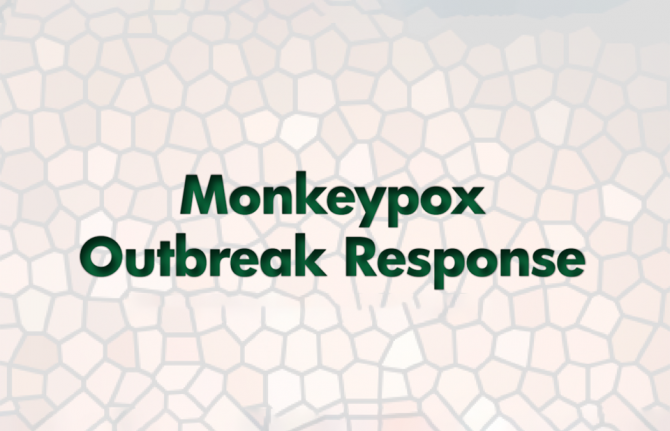
Update
UNAIDS Country Director in Nigeria shares how lessons from the AIDS response apply to the Monkeypox response
24 August 2022
24 August 2022 24 August 2022Dr Leo Zekeng, UNAIDS Country Director and Representative in Nigeria, has shared how lessons from the AIDS response apply to the Monkeypox response.
Dr Zekeng said:
“Monkeypox is endemic in Nigeria, and in recent weeks there has been a significant increase in suspected and confirmed cases. The Nigeria Center for Disease Control (NCDC)’s most recently published sitrep (7th August 2022) indicates that in 2022 there have been over 473 suspected Monkeypox cases (407 of which are since 30th May), of which have been 172 confirmed (151 of which are since 30th May). In the most recent weekly data published (1st to 7th August), 60 suspected cases were recorded in one week, out of which 15 were confirmed.
The Nigerian government, civil society organisations, development partners and the UN are working together to respond to the increase of suspected and confirmed Monkeypox cases in Nigeria. On 26th May 2022, the Nigeria Centre for Disease Control and Prevention (NCDC) activated a national multisectoral Emergency Operations Centre for Monkeypox to strengthen and coordinate ongoing response activities in-country while contributing to the global response.
Lessons we have learnt in the AIDS response apply to the Monkeypox response too. The Monkeypox response in Nigeria is being impacted by both social stigma and by global inequality in access to essential medicines, including vaccines.
Local staff in the most affected states have reported that stigma, connected with commentary from across the world blaming gay people for Monkeypox, is discouraging some people from seeking care. Local staff report that there have been situations of people being too afraid to access medical care because of stigma. State Health officials are working to ensure that staff at health clinics are sensitized to break down such stigma, and not to reinforce it. State Ministry of Health officials are also embarking on community sensitization on Monkeypox, emphasizing identification of symptoms, prevention, and the need to get tested.
The scarcity of key medicines is also holding back Nigeria's Monkeypox response. There is a need to support expansion of the supply of medicines, equipment, and sample collection materials. Unlike the US and EU, Nigeria does not have any supply of vaccines for Monkeypox. This brings amongst people in affected areas a sense of frustration that they have been left behind by the world. This inequality in access to vaccines and other key medicines must be urgently put right by sharing doses, sharing production rights and sharing know-how.
Support in efforts to challenge stigma, and in enabling access to essential medicines, are key to ensuring that everyone impacted by Monkeypox in Nigeria gets the care they need. Support for the response in Nigeria is essential for the success of the global response."
UNAIDS
The Joint United Nations Programme on HIV/AIDS (UNAIDS) leads and inspires the world to achieve its shared vision of zero new HIV infections, zero discrimination and zero AIDS-related deaths. UNAIDS unites the efforts of 11 UN organizations—UNHCR, UNICEF, WFP, UNDP, UNFPA, UNODC, UN Women, ILO, UNESCO, WHO and the World Bank—and works closely with global and national partners towards ending the AIDS epidemic by 2030 as part of the Sustainable Development Goals. Learn more at unaids.org and connect with us on Facebook, Twitter, Instagram and YouTube.
Our work
Region/country
Related

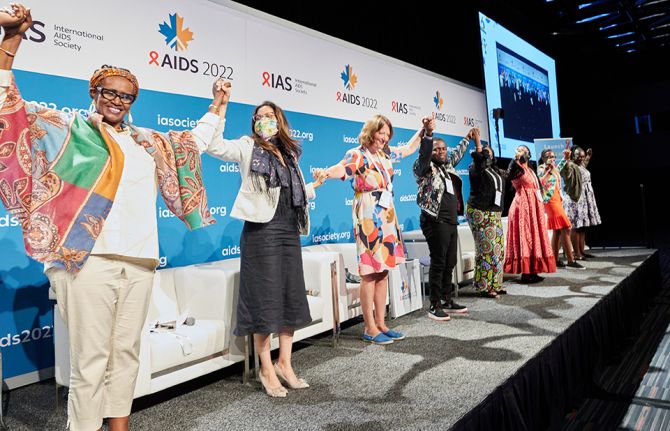
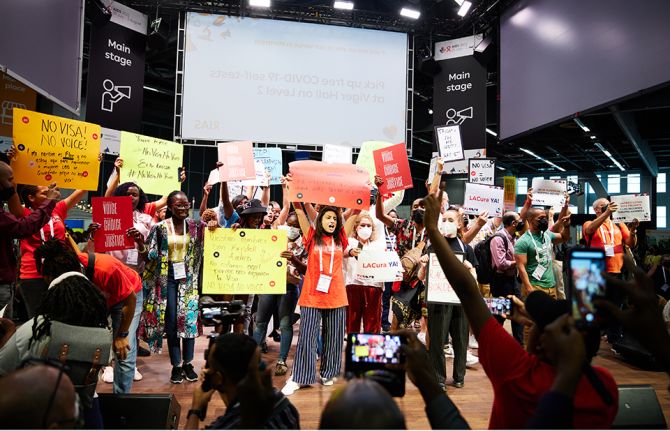
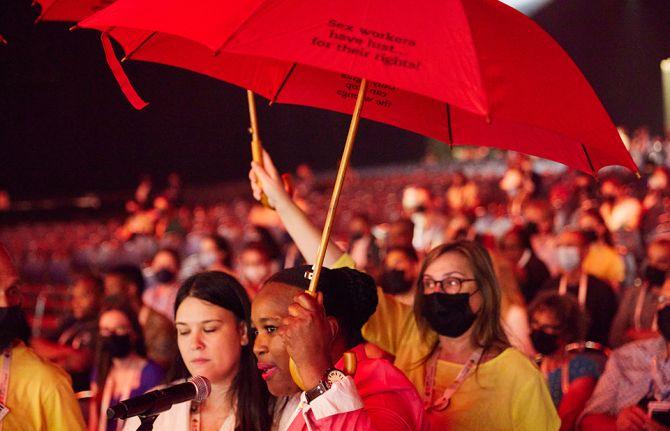
Feature Story
Pandemics are not fate: Concrete actions to tackle inequalities can overcome AIDS, Monkeypox and COVID-19
10 August 2022
10 August 2022 10 August 2022We do not need to accept pandemics as fate, experts gathered at the International AIDS Conference concurred. By taking specific, well-evidenced, concrete actions to tackle the inequalities driving them, today’s health threats can all be overcome.
As the latest data reveals that progress in the HIV response is stalling, putting millions of lives in danger, as the COVID-19 crisis drags on, and as Monkeypox presents new risks, all are being held back by inequalities, and all three viruses are in turn further exacerbating those inequalities. However, a focus on tackling underlying drivers of pandemic risk can enable a successful response, scientists, economists and heads of AIDS programmes concurred.
“There are Monkeypox vaccine doses in Europe but none in Africa. Most people at risk of dying from COVID-19 in lower-income countries have still not received a COVID-19 vaccine. New game changing prevention medicines for HIV will not be widely available in lower income counties for years unless there is a dramatic course correction,” said Winnie Byanyima, Executive Director, UNAIDS, and Under-Secretary-General of the United Nations. “An effective response to disease outbreaks and pandemics means tackling inequalities. That means empowering women and girls to shift power relations between men and women. It means tackling inequalities in access to health services between rich and poor. And it means removing punitive laws that push away from life-saving services LGBTQI+ people, people who use drugs, and sex workers.”
The application of scientific advancements is currently being undermined by inequalities, delegates at the International AIDS Conference noted. They recalled how, at the turn of the millennium, civil society and generic manufacturers teamed up to demand access to antiretrovirals for people living with HIV and their victory against the odds helped save millions of lives. But whilst that battle was won, delegates highlighted that the overall process of research and development, innovation and how that translates into manufacturing, pricing and distribution has remained untransparent and heavily skewed to the interests of rich countries. This played out during the COVID-19 pandemic as tests, vaccines and now antivirals are widely available in rich countries while still scarce in lower-income countries. And now this is repeating again with Monkeypox.
Inequality is not only about differential risks but is about cycles of power, the imbalance in how laws and policies are implemented, who is empowered by these policies, and who is disempowered.
“The AIDS movement is one of the best examples of how groups of people experiencing intersecting inequalities can unite to overcome them, leading to millions of lives being saved,” said Professor Joseph Stiglitz, Nobel laureate in economics. “But those gains were not permanent. Now a heating world combined with systemic inequalities mean that new disease outbreaks are becoming more frequent and while technological advancement is important, if there’s not a serious move to tackle inequality, the pattern of prolonged pandemics will only continue.” Professor Stiglitz was speaking at the AIDS Conference’s flagship session entitled “How Inequalities Perpetuate Pandemics: Why We Need a New Approach to End AIDS.”
New HIV infections occurred disproportionately among young women and adolescent girls, with a new infection every two minutes in this population in 2021. The gendered HIV impact, particularly for young African women and girls, occurred amidst disruption of key HIV treatment and prevention services, millions of girls out of school due to pandemics, and spikes in teenage pregnancies and gender-based violence. In sub-Saharan Africa, adolescent girls and young women are three times as likely to acquire HIV as adolescent boys and young men.
Worldwide, only half (52%) of children living with HIV have access to life-saving medicine, and the inequality in HIV treatment coverage between children and adults is increasing rather than narrowing.
Racial inequalities drive HIV too. In the United Kingdom and the United States, declines in new HIV diagnoses have been smaller among Black populations than among White. In Australia, Canada and the United States, HIV acquisition rates are higher in Indigenous communities than in non-Indigenous communities.
Sbongile Nkosi, Co-Executive Director of the Global Network of PLHIV stated “Our experiences to date remind us that responding to pandemics such as HIV and COVID-19 is not just about dealing with a medical condition, it’s also about the environment in which we live and how my social status will determine the care I receive. It means centering interventions around the needs of people, listening to people. When we talk about key populations, we tend to group people. But then we misunderstand inequalities. People live intersecting lives and inequalities affect them differently.” During the disruptions of the last few years, key populations have been particularly affected in many communities – with rising prevalence in many locations. UNAIDS data have shown increasing risk of new infections faced by gay men and other men who have sex with men (MSM) globally. As of 2021, UNAIDS key populations data show MSM have 28 times the risk of acquiring HIV compared to people of the same age and gender identity while people who inject drugs have 35 times the risk, sex workers 30 times the risk, and transgender women 14 times the risk.
Just as tackling inequalities has been key to progress in tackling HIV, so it is in tackling COVID-19. But too many COVID-19 responses have ignored this. “We have failed to learn a lot of the lessons from HIV/AIDS in the way we responded to COVID-19. And we need to be honest about that and reflect on where we go from here,” noted Executive Director of the Global Fund, Peter Sands.
“It's time not only to know your gaps but to close those gaps,” said Ambassador John Nkengasong, US Global AIDS Coordinator and Special Representative for Global Health Diplomacy.
Today’s inequalities are bleak. But the most important message is a hopeful one. We know how to end AIDS by 2030 and also how to overcome Monkeypox, COVID-19 and other current and future health threats: when we tackle the inequalities which drive health risks, we can keep everyone safe.
UNAIDS
The Joint United Nations Programme on HIV/AIDS (UNAIDS) leads and inspires the world to achieve its shared vision of zero new HIV infections, zero discrimination and zero AIDS-related deaths. UNAIDS unites the efforts of 11 UN organizations—UNHCR, UNICEF, WFP, UNDP, UNFPA, UNODC, UN Women, ILO, UNESCO, WHO and the World Bank—and works closely with global and national partners towards ending the AIDS epidemic by 2030 as part of the Sustainable Development Goals. Learn more at unaids.org and connect with us on Facebook, Twitter, Instagram and YouTube.

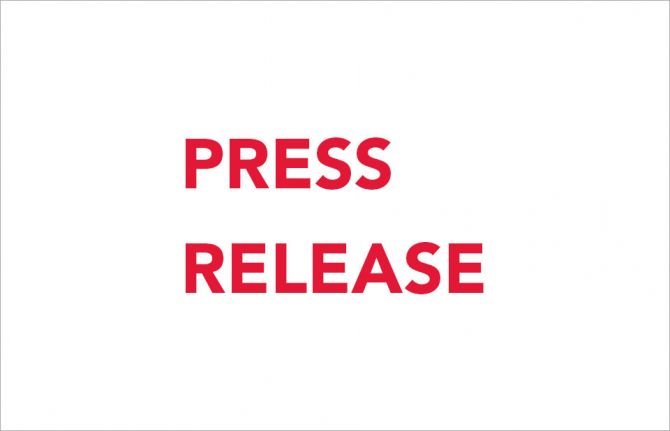
Press Release
UNAIDS calls for urgent global response to Monkeypox Public Health Emergency with rights-based public health and equitable access to vaccines
23 July 2022 23 July 2022GENEVA, 23 July 2022—UNAIDS today called on governments to respond urgently to the World Health Organization declaration of Monkeypox as a Public Health Emergency of International Concern. WHO has received reports over 16 thousand cases in 75 countries. The outbreak is occurring particularly, but not exclusively, among gay men and other men who have sex with men.
“The World Health Organization has issued an urgent call today based on clear evidence that Monkeypox represents a global threat to the health of communities and requires a global response,” said Dr. Matthew Kavanagh, UNAIDS Deputy Executive Director a.i. “This outbreak can be stopped if governments, healthcare providers, communities, and pharmaceutical companies act with urgency. Drawing on the hard-learnt lessons of the response to the AIDS pandemic, effective public health actions must be guided by the principles of solidarity, equality, nondiscrimination and inclusion. The virus, spread through close contact, can affect anyone. But it is currently most impacting gay men and other men who have sex with men, who in many communities face discrimination. Stigma and discrimination undermine epidemic response, sending people with symptoms underground and failing to address the underlying barriers that people face in attempting to protect their own health and that of their community. It can also cause public health authorities to act with insufficient urgency. We urge people to demonstrate compassion to those affected, not discrimination. UNAIDS is urging countries to partner and engage affected communities in the development, implementation, and monitoring of all stages of the response.
“We are concerned that some low- and middle-income countries are struggling to get access to vaccines being deployed now in high income countries. Repeating vaccine nationalism and inequality will prolong the outbreak and unjustly deepen suffering from this virus. We call on governments and vaccine manufacturers to work together to ensure that all those in need can access and benefit from vaccines, including people affected in endemic countries.
“UNAIDS would like to acknowledge the leadership of organizations led by communities of gay, bisexual and other men who have sex with men that, in many countries, have been stepping forward in responding to the outbreak, raising awareness, challenging misinformation and supporting vaccination efforts.”
The Monkeypox outbreak illustrates that communities will continue to face threats from viruses, and that international coordination and solidarity is essential for public health as viruses can only be overcome globally.
UNAIDS urges all media covering Monkeypox to follow the regular updates being issued by WHO.
UNAIDS
The Joint United Nations Programme on HIV/AIDS (UNAIDS) leads and inspires the world to achieve its shared vision of zero new HIV infections, zero discrimination and zero AIDS-related deaths. UNAIDS unites the efforts of 11 UN organizations—UNHCR, UNICEF, WFP, UNDP, UNFPA, UNODC, UN Women, ILO, UNESCO, WHO and the World Bank—and works closely with global and national partners towards ending the AIDS epidemic by 2030 as part of the Sustainable Development Goals. Learn more at unaids.org and connect with us on Facebook, Twitter, Instagram and YouTube.

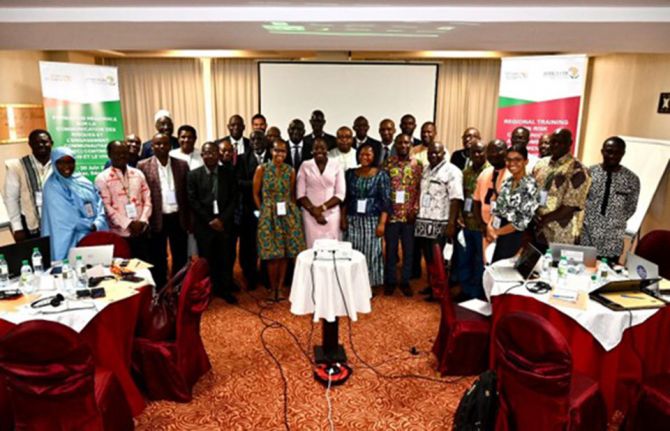
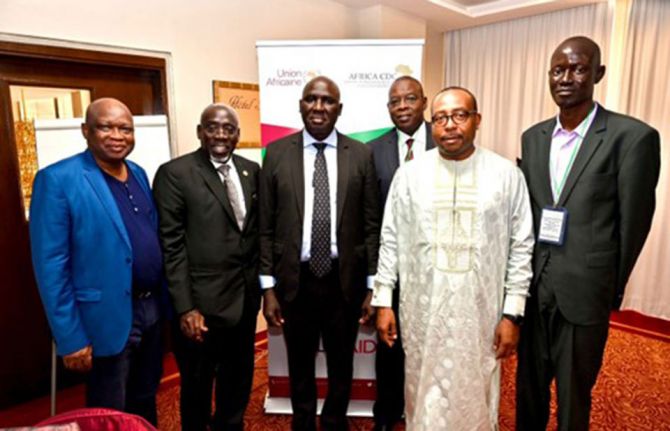
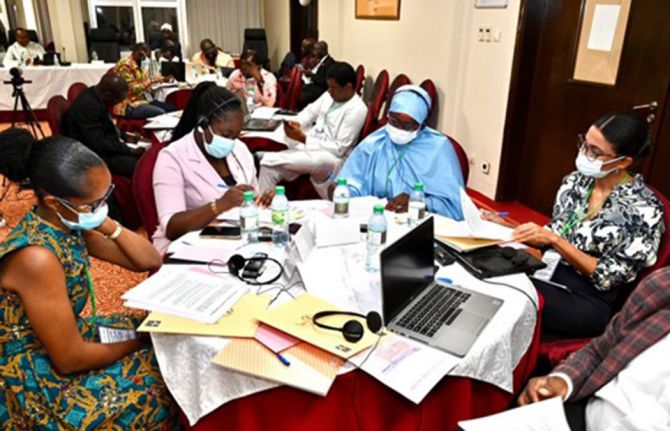
Feature Story
UNAIDS and Africa CDC tackle misinformation around COVID-19 and HIV in Africa
30 June 2022
30 June 2022 30 June 2022Two years into the COVID-19 pandemic and there is still much misinformation around the disease. This is fuelling vaccine hesitancy and undermining efforts to respond effectively and protect the most vulnerable.
To respond to misinformation around COVID-19 and HIV, UNAIDS and the Africa Centers for Disease Control and Prevention (Africa CDC), with support from the German Ministry of Health, are organizing a series of training sessions to strengthen the capacities of African Ministries of Health and National Public Health Institutes. The sessions cover key areas of risk communication and community engagement on COVID-19 and HIV such as strategic communication planning, media engagement, familiariziation with continental and regional guidelines, social media and rumour management.
“These trainings aim at harmonizing and coordinating our risk communication and community engagement interventions on COVID-19 and HIV, and better engage our communities in the response to pandemics” said Benjamin Djoudalbaye, Head of Public Health Diplomacy at Africa Centers for Disease Control.
According to the World Health Organization, in the first three months of 2020, nearly 6 000 people around the globe were hospitalized because of coronavirus misinformation. Rumors on COVID-19, HIV, and most recently Monkeypox are reinforcing stigma and discrimination affecting populations which are already marginalized due to their race, economic status and/or gender identity.
To track and address rumors and fake information surrounding COVID-19 and HIV, UNAIDS and Africa CDC are running a rumor management system—a software that uses machine learning combined with human expertise to collect and analyze rumour data from open source traditional media (web-based, broadcast) as well as social media (Facebook, Twitter, Whatsapp). The system enables the identification of false and misleading narratives and sentiments related to COVID-19 and HIV. Weekly reports are then consolidated and used by Africa CDC as an alert system across the continent.
The first training session was held on 28 June in Dakar, Senegal for eleven countries of the West Africa Region. Two other training sessions will be held in the central and north African regions in July 2022.
Related resources
Region/country
Related

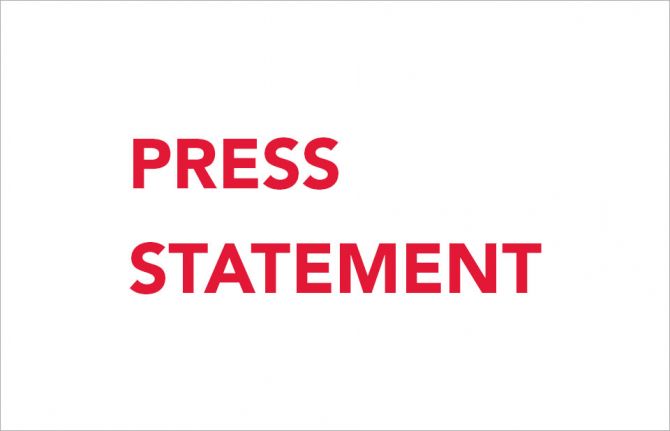
Press Release
UNAIDS warns that stigmatizing language on Monkeypox jeopardises public health
22 May 2022 22 May 2022GENEVA, 22 May 2022—UNAIDS has expressed concern that some public reporting and commentary on Monkeypox has used language and imagery, particularly portrayals of LGBTI and African people, that reinforce homophobic and racist stereotypes and exacerbate stigma. Lessons from the AIDS response show that stigma and blame directed at certain groups of people can rapidly undermine outbreak response.
Since May 13, 2022, an outbreak of Monkeypox has been reported in multiple UN member states where cases are not usually reported. As of May 21, the World Health Organization received reports of 92 laboratory-confirmed cases and 28 suspected cases from 12 Member States not endemic for the disease. A significant portion of the cases have been identified among gay, bisexual, and other men who have sex with men, with some cases identified through sexual health clinics. Investigations are ongoing. WHO notes that available evidence suggests that those who are most at risk are those who have had close physical contact with someone with monkeypox, and that risk is not limited to men who have sex with men.
UNAIDS urges media, governments, and communities to respond with a rights-based, evidence-based approach that avoids stigma.
“Stigma and blame undermine trust and capacity to respond effectively during outbreaks like this one,” said Matthew Kavanagh, UNAIDS Deputy Executive Director a.i. “Experience shows that stigmatizing rhetoric can quickly disable evidence-based response by stoking cycles of fear, driving people away from health services, impeding efforts to identify cases, and encouraging ineffective, punitive measures. We appreciate the LGBTI community for having led the way on raising awareness – and we reiterate that this disease can affect anyone.”
The Monkeypox outbreak illustrates that communities will continue to face threats from viruses, and that international coordination and solidarity is essential for public health as viruses can only be overcome globally.
“This outbreak highlights the urgent need for leaders to strengthen pandemic prevention, including building stronger community-led capacity and human rights infrastructure to support effective and non-stigmatizing responses to outbreaks,” noted Dr. Kavanagh. “Stigma hurts everyone. Shared science and social solidarity help everyone.”
UNAIDS urges all media covering Monkeypox to follow the regular updates being issued by WHO.
UNAIDS
The Joint United Nations Programme on HIV/AIDS (UNAIDS) leads and inspires the world to achieve its shared vision of zero new HIV infections, zero discrimination and zero AIDS-related deaths. UNAIDS unites the efforts of 11 UN organizations—UNHCR, UNICEF, WFP, UNDP, UNFPA, UNODC, UN Women, ILO, UNESCO, WHO and the World Bank—and works closely with global and national partners towards ending the AIDS epidemic by 2030 as part of the Sustainable Development Goals. Learn more at unaids.org and connect with us on Facebook, Twitter, Instagram and YouTube.

